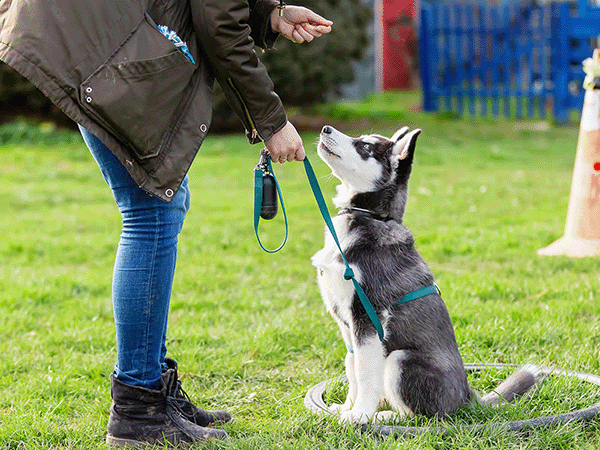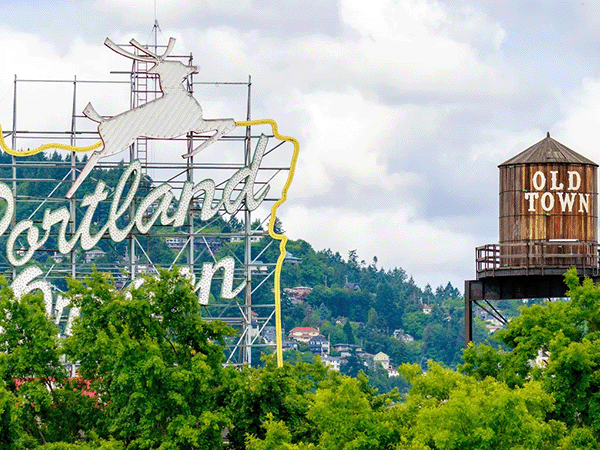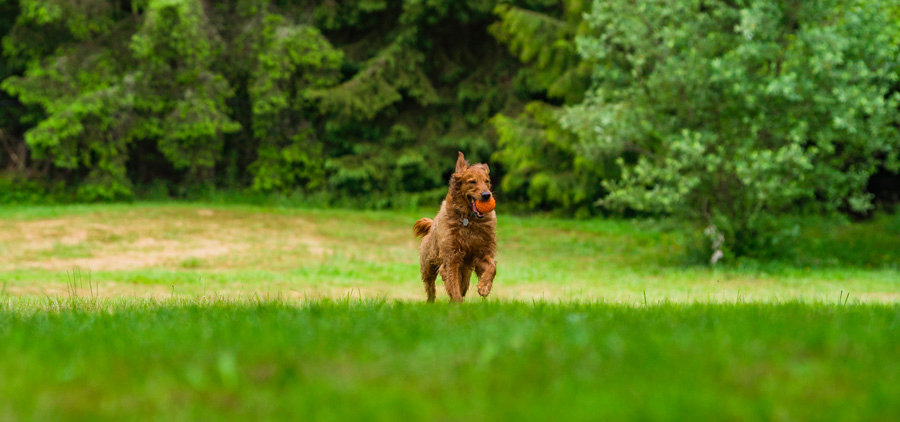How to Become a Dog Trainer in Washington State

So you're ready to turn your love for dogs into a career in Washington state? Fantastic! This guide breaks down exactly how to become a dog trainer in Washington state. From certification and education to launching your own dog training business, we'll cover it all. Plus, we'll point you towards resources specifically for Washington, so you can confidently take the next step toward your dream dog trainer jobs near me. Let's get started!
If you’ve been thinking about pursuing a career as a dog trainer, this guide is for you. Maybe you fell in love with the idea while working your own pet dog through a training program for behavioral struggles. Maybe you’ve been watching one too many episodes of your favorite reality dog training TV show. Maybe you think it’s a great way to turn your lifelong love for animals into a rewarding career.
Here’s everything you need to know about becoming a professional dog trainer!
Read on for what the dog training profession entails, how you can get hands-on experience with training techniques, the importance of continuing education as the canine cognition field evolves, and more.
Summary: Overview of how to become a dog trainer
There is no one-size-fits-all process to becoming a dog trainer. Pet professionals get started down their career paths in different ways!
That said, here are some general guidelines to follow if you’re new to the idea of training dogs as your job.
- Understand what being a dog trainer entails. (Spoiler: there’s a lot of people teaching involved, too!)
- Get some hands-on experience, working with a variety of dogs, to hone your training skills.
- Dive into the latest understanding of dog training theory and animal behavior.
- Find a trusted dog training mentor or training school, if possible.
- Commit to continuing education!
- Consider getting a training certification from a respected professional organization for force free training.

Key Takeaways
- Dog training involves more than just dogs: It requires strong people skills, as trainers work closely with owners, providing guidance and support. Consider the emotional and physical demands of the profession before diving in.
- Practical experience is key: Working with a variety of dogs in different settings builds essential skills and confidence. Explore opportunities like training your own dog, volunteering at a shelter, or apprenticing with a professional.
- Stay up-to-date with the latest training methods: Continuing education is crucial in the ever-evolving field of dog training. Seek out reputable certifications, courses, and resources that emphasize positive reinforcement techniques.
1) Understand what being a dog trainer entails
It’s important you understand what you’re getting into before you commit to becoming a dog trainer. While every individual training business will have a different approach and serve their own unique clients, you should know a few core things.
Dog trainers work daily with dogs
This should come as no surprise. Dog trainers, of course, spend much of their time working with a variety of dogs!
Pet professionals who also offer boarding services on top of hosting classes or teaching individual private lessons invest even more of their waking hours into caring for their canine pupils. (Many dog trainers watch their clients’ dogs when their families go out of town. Some also offer board-and-train programs to kickstart the training process.)
This daily work directly with dogs can involve tasks like:
- Active training sessions
- Socialization outings
- Monitoring dog-dog playgroups
- Basic grooming and healthcare
- Cleaning kennels
- Organizing dog supplies like leashes, long lines, muzzles, and more
Dog trainers also work closely with a variety of different people
Something that’s less well understood about dog trainers: They don’t only work with dogs. Dog trainers are ultimately service workers! Many canine professionals get into the industry because they love animals… and are surprised to realize how much of their day is dedicated to communicating with the human end of the leash.
Depending on the types of services you decide to offer as a trainer, you might spend even more time interacting with pet parents than their actual dogs. This means it’s important you enjoy coaching people! (Deciding to become a dog trainer because you feel that “dogs are better than humans” probably isn’t a great idea. You need to be a people person too.)
Here are just a few of the ways dog trainers provide support to owners:
- Teaching key concepts during training classes and private lessons. The better job you do laying the foundation, the easier it will be for your pet parent clients to complete their homework and continue training on their own.
- Offering constructive feedback in class or remotely through email, phone calls, and text messages.
- Customizing training plans to individual lifestyles and goals. Every dog, owner, and lifestyle is different!
- Processing emotions—especially when dogs struggle with behavioral issues that can put strain on human relationships. Sometimes dog trainers play the role of therapist. (It’s important to take care of your own mental health, too.)

There are several types of dog trainers
Aspiring dog trainers might choose to specialize in different things. While every professional dog trainer should understand basic learning theory (operant conditioning, classical conditioning, canine cognition) and have some general practical skills (more on education later), there are multiple directions you can take your knowledge!
If you start your own business, you’ll be able to choose firsthand which clients you want to take on. If you join an existing franchise, you’ll have less control (but more support from your superiors). The right fit is up to you.
Some professional dog training companies focus on:
- Puppy training and foundational skills
- Aggression
- Other behavior modification cases
- Dog-dog socialization
- Dog sport training
- Service dog training
- Separation anxiety
- And more
Specialization Options for Dog Trainers
As mentioned, dog trainers can specialize in different areas. Some trainers love working with small dogs and puppies, while others prefer the challenge of large breed dog training. Some focus on basic obedience, while others specialize in reactivity or aggression. Finding your niche can help you build a successful training business by attracting the clients you enjoy working with most.
For example, if you have a passion for helping reactive dogs, you could focus on building a program specifically for them. This allows you to tailor your training methods and tools to address the unique challenges these dogs and their owners face. Partnering with local businesses like Sniffspot to offer private training sessions in safe, controlled environments could also be beneficial for your business and your clients.
Other specialization options include:
- Puppy training and socialization
- Competition obedience
- Service dog training
- Therapy dog training
- Emotional support animal training
- Scent work
- Trick training
The possibilities are endless! The key is to identify your strengths and interests, then build your skills and experience in those areas. This will not only make you a more effective trainer, but also a happier one.
Dog training can be emotionally and physically draining
Dog training is an incredibly rewarding career. Many pet professionals can’t imagine doing anything els. Knowing you helped a client accomplish their goals is an amazing feeling! As a trainer, you have the opportunity to change both canine and human lives for the better.
It’s important to know that dog training isn’t all rainbows and competition ribbons and behavior modification success stories, though. Depending on the type of dog training you decide to pursue, the profession can be grueling both emotionally and physically.
Emotional Challenges of Professional Dog Training:
- Dog training can impact your social outings and work-life balance. You might have to work unusual hours or factor in travel commitments (especially if you offer in-person lessons at client homes).
- Dog owners might place lofty expectations on trainers—when in reality a dog’s success is a shared responsibility.
- Even when you do your best for every dog you work with, you won’t be able to control the outcome. So much depends on the owners and environment and factors out of your influence.
- Dog trainers might be faced with severe behavioral cases they aren’t able to help. It’s difficult to turn away clients in need.
- Behavioral euthanasia is sometimes the most humane option for dogs and pet parents who are deeply suffering. This is a difficult conversation for everyone involved.
Physical Demands of Professional Dog Training:
- Dog trainers spend a lot of the day on their feet. During hands-on training, they run around, bend over, manage leashes, wrangle long lines, play with dogs who might be very strong… The list goes on.
- Working with dogs, especially fear or aggression cases, always comes with the risk of being bitten. Proper knowledge and preventative steps can go a long way here! But it’s important to keep caution in mind.
2) Get some hands-on training experience around different dogs
If dog training still sounds like an appealing career after understanding the commitment, it’s time to get your feet (or should we say paws) wet working with some four-legged students.
Train your own dog!
Training your own dog is a great first step for many aspiring dog trainers. You get to play the role of both trainer and owner, which helps you understand what it’s like to work with a pet you consider part of the family.
In fact, many professional dog trainers are in the industry because at some point they ended up with a challenging dog of their own—perhaps a fearful rescue who struggled with reactivity—and fell in love with the art and science of dog training as a result. These hours of experience training, troubleshooting, and adjusting in the moment can provide a solid foundation to embark on your new career.
Is Training Your Own Dog Enough to Be a Professional?
Note that training your own dog does not mean it’s appropriate to go out and call yourself a dog trainer. It does mean you’re one step closer to working with other dogs and owners!
Can You Become a Dog Trainer Without a Dog?
If you don’t have a dog of your own right now? Don’t fret. That doesn’t preclude you from becoming a dog trainer so long as you’re passionate about the career. There are many lifestyle variables that might mean it’s not the best choice to open your home to a long-term animal resident right now—but you could still be able to offer your services to other clients.
Offer to help your family and friends with their dogs
A logical next step after working with your own dog (or if you don’t have a dog of your own to practice with) is to reach out to family and friends to see if they need help with their own pets. This will expose you to a greater range of behavior and environments in a causal, low-stress way.
Make sure to be transparent with your connections that you’re not an established professional yet. Don’t hesitate to reach out to a more experienced trainer if you encounter any behavioral cases!
Some ways to get started interacting with more dogs include:
- Offer to walk your neighbors’ dogs
- Start pet sitting on the side
- Help your family choose a behavior to work on with their dog (maybe they need help with mild leash pulling or refining recall) and help them teach it
Volunteer to work with dogs at your local shelter
Volunteering at your local shelter can be a great way to encounter even more different dogs and make a difference to pets in need as you continue to grow your skills. Humane societies and animal shelters around the country have different requirements, so check with your nearby organizations for next steps.
Remember that shelters can be stressful environments for both dogs and humans. Make sure to attend any recommended courses. Follow directions closely and always defer to staff instructions. This is a great way to get valuable experience—as time goes on, you’ll be able to make more of an impact and provide experienced advice.
Seek Out Apprenticeships or Shadowing Opportunities
One of the best ways to gain hands-on experience is through apprenticeships or shadowing opportunities. These allow you to learn directly from experienced trainers, observe their techniques, and gradually take on more responsibility. Think of it as a mentorship where you can ask questions, get feedback, and build confidence in a real-world setting. Finding a local trainer you admire and asking to volunteer or shadow them offers invaluable insight into the profession.
Some training schools or organizations offer formal apprenticeship programs. For example, Motley Zoo Animal Rescue in Redmond, WA, has a free dog training apprenticeship. While not a certified course, it provides valuable hands-on experience working directly with rescue dogs, learning dog handling, safety, sanitation, and core training skills. Even if a formal program isn't available, reaching out to local trainers and expressing your interest can sometimes lead to informal shadowing opportunities. It never hurts to ask!
Remember, gaining hands-on experience working with a variety of dogs is crucial for developing your skills and building your confidence as a dog trainer. Apprenticeships and shadowing are excellent avenues for achieving this, providing a bridge between theoretical knowledge and practical application.
3) Dive into dog training theory (and stay up to date with continuing education)
At the same time you’re getting hands-on experience with different dogs, you should be investing in your conceptual education, too. Theory and practice go hand in hand! Neither works without the other in a profession like dog training—it’s a mixture of both art and science.
Some ways to grow your knowledge about dogs:
- Attend seminars hosted by well-regarded professional trainers
- Subscribe to online content provided by a reputable force free organization
- Consider going to a professional trainer’s dog training school, like the Karen Pryor Academy
- Learn how to analyze scientific studies about dog training methods
- Read books written by established dog trainers, ethologists, and other canine professionals
Dog training theory is complex. (We’ve summed up some initial concepts in this article.) Here are a few things to look for as you start consuming content and learning training techniques:
- Look for certified dog training professionals with years of experience. (More on certification below.)
- Avoid pet professionals who aren’t willing to talk about the evolution of training principles over time. Modern animal training is much different than it was even just a few decades ago.
- Be wary of anyone who talks about dominating dogs, using force, or depriving our canine companions of basic needs like food and social interaction. You want to look for humane training resources.
- Understand that we can’t expect dogs to automatically understand our social norms. (“Good” and “bad” behavior are subjective!)
This list of resources can be a helpful place to start growing your dog training knowledge!
Recommended Educational Resources
Ready to dive into the world of dog training education? Here are some resources to get you started. Keep in mind that the field of canine training and behavior is constantly evolving, so ongoing learning is essential.
Books and Articles
Books and articles can be a fantastic starting point for learning about dog training. Look for authors who are certified professional dog trainers, ethologists, certified applied animal behaviorists, or other canine professionals with relevant credentials. Organizations like the Certification Council for Professional Dog Trainers (CCPDT) offer helpful resources to guide your search. For example, the CCPDT provides a recommended reading list covering various aspects of dog training and behavior.
Online Courses and Programs
Several reputable organizations offer online and in-person dog training courses and programs. These can provide a more structured learning experience. The Karen Pryor Academy (KPA) is known for its science-based, force-free curriculum and has locations worldwide. The Academy of Pet Careers (APC) also offers programs leading to nationally recognized certification. Research different programs to find one that aligns with your learning style and career goals. Look for programs accredited by reputable organizations, such as the International Association of Animal Behavior Consultants.
Understanding Different Training Philosophies
Not all dog training methods are created equal. It’s crucial to understand the different training philosophies and choose an approach that prioritizes the dog's well-being and uses ethical, effective techniques. As you research educational resources, pay close attention to the training methodologies they advocate.
Force-Free and Positive Reinforcement Methods
Force-free training, also known as positive reinforcement training, focuses on rewarding desired behaviors and avoiding the use of punishment, intimidation, or pain. This approach builds a positive relationship between dog and owner, promotes cooperation, and fosters a love of learning. Many resources explain the principles of force-free training in detail. Look for programs, like those offered by the Academy of Pet Careers, that emphasize these humane, science-backed methods. Organizations like the Pet Professional Guild champion force-free training and offer valuable resources for pet owners and professionals.
Aversive Training Techniques to Avoid
Some training programs still rely on outdated and potentially harmful aversive techniques. These methods often involve using punishment or intimidation to suppress unwanted behaviors. Be wary of programs that use terms like “pack mentality,” “dominance,” or “alpha” to justify their methods. These concepts are based on misinterpretations of wolf behavior and can damage the dog-owner relationship and create fear and anxiety in dogs. The American Veterinary Society of Animal Behavior (AVSAB) provides further information on why dominance-based training should be avoided. Prioritize force-free methods that focus on building trust and cooperation.
4) Consider getting certified as a professional dog trainer
You technically don’t need any sort of formal education or certification to call yourself a dog trainer in the United States. There are no regulations on the field—and some national certification organizations pose accessibility issues that can gate keep the industry from otherwise talented, dedicated professionals.
That said: If you’re able to, it’s a good idea to pursue a well-regarded dog training program. The top successful dog trainers take their education seriously and want to help owners make sense of the confusing landscape. Completing a certification can be a great test of your skills. Passing a rigorous exam lets you know you’re ready to offer your services to other owners in good faith—and it can make your expertise clear to potential clients, too.
Here are a few options for training certification, professional membership, and continuing education courses for force free trainers:
- Academy for Dog Trainers
- Association of Professional Dog Trainers
- Certification Council for Professional Dog Trainers
- International Association of Animal Behavior Consultants
- Karen Pryor Academy
- Victoria Stilwell Academy
- Nicole Wilde’s So You Want to Be a Dog Trainer books

Certification Options and Requirements
CPDT-KA Certification
One of the most common certifications in the United States is the Certified Professional Dog Trainer – Knowledge Assessed (CPDT-KA) title from the Certification Council for Professional Dog Trainers (CCPDT). To earn the CPDT-KA certification, you’ll need to complete at least 300 hours of dog training experience in the past three years and pass a 180-question multiple-choice exam. The CCPDT website has helpful information about eligibility requirements and exam prep.
Other Reputable Certifications
The CPDT-KA certification is a good starting point, but other reputable certifications are also available. Many professional training schools offer their own in-house certifications upon program completion. It’s a good idea to do your research and find a program that aligns with your training philosophy and career goals. This article on how to become a dog trainer can help you find a program that’s a good fit.
Benefits of Certification
Passing a rigorous exam like the CPDT-KA or completing a certification program from a respected organization gives you confidence that you’re ready to offer your services to clients. Plus, these credentials clearly communicate your expertise to potential clients. Certification shows your commitment to professional development and staying up-to-date with the latest training methods. It also demonstrates you’ve invested the time and effort to meet industry standards, giving pet parents peace of mind when they entrust their beloved canine companions to your care.
See if any trainers near you are looking for part-time employees or apprentices
One way to set yourself up for success as a dog trainer is to apprentice under someone who is an expert at the craft. An owner or employee of a dog training company will be able to guide you through all aspects of training dogs professionally—from actual nitty-gritty training concepts, to different types of services and pricing, to setting up your own business, and more.
Some dog trainers offer specific mentorship programs where they take on anywhere from one to several students at a time. Other relationships happen more organically, like when a long-time attendee of a trainer’s classes expresses an interest in joining the profession. You can also consider looking for part-time jobs to get your foot in the door with an initial career opportunity.
This is a great next step once you’ve obtained knowledge about learning theory, dog body language, and training mechanics. Here’s to you and your future animal training endeavors!
5) Build Your Dog Training Business (or Find Employment)
Business Aspects of Dog Training
Successfully training dogs requires more than just a love for our canine companions and knowledge of positive reinforcement methods. You also need business skills. Most dog trainers are self-employed, which means you’ll be responsible for everything from marketing and scheduling, to accounting and customer service. Be prepared for irregular hours, including evenings and weekends, as that’s when many clients are available for sessions. Income can also be variable, especially when you’re first starting out, so don’t expect a high salary initially.
Setting Up Your Own Business
If you decide to set up your own business, you’ll have complete control over your brand, services, and pricing. This can be incredibly rewarding, allowing you to tailor your offerings to your specific interests and target audience. However, it also means you’re responsible for all aspects of running the business, from obtaining necessary licenses and permits to managing finances and marketing your services. Creating a solid business plan is crucial for success.
Finding Employment Opportunities
If the thought of running your own business feels overwhelming, there are other employment opportunities available. Many established dog training businesses are often looking for skilled trainers to join their team. The Academy of Pet Careers (APC), for example, offers online and in-person dog training programs that lead to nationally recognized certification and provides job placement assistance. They even have partnerships with several Washington state dog training businesses, making it easier to find employment after completing their program. You can also explore opportunities at local pet stores, animal shelters, or even dog parks like Sniffspot.
Networking and Mentorship
Connecting with other trainers is invaluable, whether you’re starting your own business or seeking employment. Joining online groups and attending industry events can provide opportunities to learn from experienced professionals, share best practices, and stay updated on the latest training techniques. Finding a mentor can provide personalized guidance and support as you navigate the challenges of building a career in dog training. Don’t underestimate the power of community!
6) Washington State Specific Information for Dog Trainers
If you’re looking to become a dog trainer in Washington State, here’s some specific information to keep in mind:
Licensing Requirements
Currently, there’s no state-mandated license required to be a dog trainer in Washington. However, obtaining professional certification, such as the one offered by the Academy of Pet Careers, can significantly enhance your credibility and demonstrate your commitment to professional development. While not legally required, certification can be a valuable asset when seeking employment or attracting clients.
Average Salary and Job Outlook
According to the Academy of Pet Careers, the average salary for a dog trainer in Washington is around $53,780. However, this figure can vary based on factors like experience, location, and specialization. The job outlook for animal care and service workers, including dog trainers, is projected to grow, indicating a positive trend for those pursuing this career path.
Trainer Review of this Article
There is so much misinformation out there, and we want to make sure we only provide the highest quality information to our community. The science of animal behavior is complex. The more seriously we take it—as pet professionals and everyday dog owners—the better! We have all of our articles reviewed by qualified, positive-only trainers.
This is the trainer that reviewed this article:
Emily Fitzpatrick
VSA-CDT
Owner and Head Trainer | Misunderstood Mutt
Related Articles
- How to Become a Dog Trainer | Certifications and Education
- Best Remote Dog Trainers in 2023 | Sniffspot
- Leash Training: The Ultimate Guide for Stress-Free Walks
- Dog Training 101: A Beginner’s Guide | Sniffspot
- How to Clicker Train Your Dog
Frequently Asked Questions
What’s the difference between working with my own dog and being a professional dog trainer? Training your own dog is a great starting point, but it doesn't qualify you to be a professional. Client dogs will present unique challenges, and working with their owners requires strong communication and people skills. Professional training involves understanding diverse learning styles, handling different temperaments, and adapting to various environments. It also includes the business aspects of running a dog training operation.
Is certification necessary to become a dog trainer? While not legally required in the United States, certification demonstrates your commitment to professional standards and can significantly boost your credibility with clients. It shows you've invested time and effort in learning ethical, effective training methods. Certification can also open doors to more job opportunities and potentially higher earnings.
What if I don't have a dog of my own? Can I still become a dog trainer? Absolutely! While having your own dog provides valuable experience, it's not a prerequisite. Volunteering at shelters, offering to help friends and family with their dogs, or pursuing apprenticeships can provide the necessary hands-on experience. Focus on building your knowledge of dog behavior and training techniques through reputable resources.
What are some reputable resources for learning about dog training? Look for organizations that emphasize force-free, positive reinforcement methods. The Certification Council for Professional Dog Trainers (CCPDT), the Karen Pryor Academy, and the Academy of Pet Careers are good places to start. Be wary of programs that promote dominance theory or aversive techniques. Prioritize resources that align with modern, ethical training practices.
What are the different career paths available to dog trainers? You can start your own business, giving you control over your services and brand. Alternatively, you can seek employment with established dog training companies, pet stores, or animal shelters. Some trainers specialize in specific areas like puppy training, reactivity, or competition obedience. Networking and mentorship can help you explore different career options and find the path that best suits your interests and goals.
Most recent articles
Related articles
Top dog guides per area
Dog training guides

Dog Food Aggression: Why You Shouldn't Punish It
Does your dog ever growl when you walk by their food dish? Maybe they get possessive of treats, carrying them far away and giving you side-eye when you start to approach — or snarling at your other pets or children if they get too close.

Best Dog Fields in the US: 25+ Wide-Open Spaces for Your Pup to Run Free
The best dog fields in the US offer something that traditional enclosed parks simply can't match: acres of open space where your pup can truly stretch their legs and run at full speed. From Colorado's 470-acre prairie meadows to Tennessee's award-winning "Outback," these wide-open spaces allow dogs to roam, explore, and exercise naturally while engaging instincts that cramped urban parks suppress.

The Ultimate Guide to Scent Training for Dogs
Your dog's nose is an amazing tool. Did you know they have 40 times the olfactory receptors than humans? Scent training for dogs taps into this superpower, turning everyday moments into exciting sniff-fests. It's enriching for all types of dogs – reactive, shy, or simply adventurous. Ready to explore the world of scent work for dogs? Let's get started.

Service Dog Training Costs: DIY vs. Pro
More than 80 million Americans rely on their service dogs to help them navigate the world. Task-trained assistance animals perform a huge range of life-changing—in many cases, life-saving—services: These dogs act as eyes for visually impaired handlers, provide mobility support, alert to seizures and blood sugar crashes, interrupt anxiety attacks, remind their people to take medications, and so much more.

How to Deal With Puppy Potty Training Regression

Dirty Dog Syndrome: Causes, Solutions, and Prevention
It's a cringe-worthy moment every dog owner dreads: your furry friend chowing down on something truly disgusting. If your dog has a penchant for poop, you're dealing with coprophagia. It's more common than you think, and thankfully, often manageable. This article explores the reasons behind dirty dog syndrome, from instinct to learned behavior. We'll also give you practical tips to help break this unpleasant habit.

How to Train Your Rescue Dog: A Complete Guide
* All Sniffspot articles are reviewed by certified trainers for quality, please see bottom of article for details *
Dog enrichment guides

Best Dog Water Parks in the US: 15+ Amazing Splash Destinations for Your Pup
Do you have a water-loving dog looking to burn some energy? There are countless dog parks to visit throughout our country — but some of them become far too hot in the midday sun to be safe for your pets to play. That’s why we’ve put together a list of some of the best dog water parks throughout the United States! At these locations, your pup can frolic, splash, and swim to their heart’s content.

Best Dog Fields in the US: 25+ Wide-Open Spaces for Your Pup to Run Free
The best dog fields in the US offer something that traditional enclosed parks simply can't match: acres of open space where your pup can truly stretch their legs and run at full speed. From Colorado's 470-acre prairie meadows to Tennessee's award-winning "Outback," these wide-open spaces allow dogs to roam, explore, and exercise naturally while engaging instincts that cramped urban parks suppress.

Best Toys for Herding Dogs: Keeping Your Pup Happy & Engaged
Herding dogs are amazing, intelligent companions. But that also means they need more than just a simple game of fetch. Finding the right toys for herding dogs is key to keeping them happy and stimulated. This article explores some of the best toys for herding dogs, including options specifically for breeds like Border Collies and Australian Shepherds. We'll help you discover the perfect herding toys for dogs to tap into their natural instincts and keep them entertained for hours.

Tough Dog Toys for Aggressive Chewers: A Practical Guide
Does your dog destroy every toy you give them? Is your house littered with the remnants of plush toys? Are you tired of wasting money on "indestructible" dog toys for aggressive chewers that don't last? Then this post is for you. We'll cover everything you need to know about finding the best dog toys for aggressive chewers, so you can finally give your pup something safe, durable, and fun.

Daily Exercise Calculator: How Much Exercise Does Your Dog Need?
Everyone knows dogs need exercise, but how much is enough? Walks are great, but creating a truly balanced fitness plan means understanding your dog's specific needs. This post helps you develop a daily exercise calculator for your dog, considering breed, age, and lifestyle. We'll cover fun activities, understanding exercise intensity, and recognizing when your pup has had enough. Let's create a plan that keeps your dog happy and healthy!

Complete Guide To Herding With Dogs
* All Sniffspot articles are reviewed by certified trainers for quality, please see bottom of article for details *

Dog Enrichment Activities: The Ultimate Guide
Ever feel like your dog is restless or bored? They may be getting enough exercise, but still need more. That's where enrichment activities for dogs come in. Giving your dog opportunities to sniff, explore, and problem-solve can make a world of difference. Whether you have a puppy, adult, or senior dog, enriching their environment is key for their well-being. Let's explore how to add cognitive enrichment for dogs, even tailoring activities to your dog's breed with breed specific enrichment and fun enrichment games for dogs.
Dog reactivity guides

Rottweiler Aggression: Truth vs. Myth
Many dogs have gotten a bad reputation over the years for being "dangerous breeds." Rottweilers are among them. Like pit bulls and other large, blocky-headed types of dogs, these powerful and beautiful animals are often assumed to be aggressive.

Best Dog Fields in the US: 25+ Wide-Open Spaces for Your Pup to Run Free
The best dog fields in the US offer something that traditional enclosed parks simply can't match: acres of open space where your pup can truly stretch their legs and run at full speed. From Colorado's 470-acre prairie meadows to Tennessee's award-winning "Outback," these wide-open spaces allow dogs to roam, explore, and exercise naturally while engaging instincts that cramped urban parks suppress.

The Reactive Dog Chart: How to Calm Your Dog's Triggers
If your dog lunges, barks, or loses their mind at the sight of another dog, a stranger, or a bicycle, you’re living with a reactive dog (and you’re far from alone). Dog reactivity is one of the most common behavioral challenges dog owners face, and it can make even a simple walk feel stressful and isolating.

How to Socialize a Reactive Dog: A Step-by-Step Guide
Does your dog display reactivity to other pets or people—barking, lunging, or growling when they see their triggers? Whether they're a rescue still settling in, missed critical socialization as a puppy, or had a negative experience, you're not alone. Reactivity is one of the most common dog behavior concerns, and with the right approach, you can help your reactive dog feel calmer and more confident around their triggers.

What Is a Reactive Dog? The Complete Guide for Understanding and Helping Your Pup
Does your dog transform into a barking, lunging tornado the second they spot another dog across the street? You're definitely not alone. According to our research of over 4,000 dog owners, 66% of dogs show some signs of reactivity.

9 Best Online Communities for Reactive Dog Parents
Does your dog's reactivity make walks stressful? You're not alone. Many dog owners face similar challenges. This guide offers practical advice and support for managing reactivity, including finding the best online dog training for reactive dogs. We'll connect you with reactive dog support groups, share training tips, and explore resources like the best dog training app for reactive dogs. Let's build a stronger bond with your dog, together.
* All Sniffspot articles are reviewed by certified trainers for quality, please see bottom of article for details *
How To Groom a Reactive Dog
* All Sniffspot articles are reviewed by certified trainers for quality, please see bottom of article for details *
Sniffspot community guides

The State of Public Dog Parks Across the United States
From 2009 to 2020, there was a 40 percent increase in the development of public dog parks. Designated spots for canine exercise have become commonplace in every major city in North America — many pet owners won’t even consider renting an apartment that doesn’t have its own fenced-in pet area for their canine companions.

Best Dog Fields in the US: 25+ Wide-Open Spaces for Your Pup to Run Free
The best dog fields in the US offer something that traditional enclosed parks simply can't match: acres of open space where your pup can truly stretch their legs and run at full speed. From Colorado's 470-acre prairie meadows to Tennessee's award-winning "Outback," these wide-open spaces allow dogs to roam, explore, and exercise naturally while engaging instincts that cramped urban parks suppress.

How This Family is Affording Their Dream Property Through Renting it Hourly to Dogs
Thousand Oaks, California has been a safe haven for Sniffspot host, Jen, since childhood. Having grown up in busy Santa Barbara, Jen, an introvert from an early age, would seek out solitude and serenity away from tourists attractions and droves of people visiting from elsewhere. “My grandparents own 60 acres about a 30 minute drive from here, and I grew up spending every summer and every holiday visiting them on the ranch,” Jen explained. “In Santa Barbara, we wouldn't go to the beach on the weekend because that's where everybody was, so you'd find places off the beaten path where the tourists weren't. For me, the ranch was just my happy place.”

Host Tips: Ellen K. What Makes Sniffspot Successful for Me
Ellen is the host of Country Pasture Getaway, one of Sniffspot's most popular sniff spots. She has taken the time to write up the lessons she has learned about how to be a great sniff spot host.

How this Oregon Farmer is Making a Business From Renting Her Land to Dogs
Just 20 minutes outside of the busy city of Portland, Oregon, and settled right on the banks of the Columbia River, you’ll find what countless visitors have flocked to the area in search of – mountain views, crisp, clean air, and running water for miles. What you might not expect to find, however, is a hidden oasis designed just for dogs and their people, owned and operated by a farming couple and enjoyed by visitors on two legs, and four.

Host Tips: Fran T. Providing Great Guest Service at our Spot
Fran is the host of Ranch Setting, one of Sniffspot's most popular spots. She has taken the time to write up the lessons she has learned about how to be a great Sniffspot host.

How Sniffspot Helped a Nervous Rescue Work Through His Fears and Change His Family’s Life
This is the story of a family and dog rescuing each other.
Top dog trainers in the US

The Best Dog Trainers in the United States of 2026
This is a list of the top dog trainers in the United States, based on votes from the Sniffspot community and the general public.
The Best Dog Trainers in Seattle, WA of 2026
This is a list of the top dog trainers in Seattle, WA, based on votes from the Sniffspot community and the general public.
The Best Dog Trainers in Portland, OR of 2026
This is a list of the top dog trainers in Portland, OR, based on votes from the Sniffspot community and the general public.
The Best Dog Trainers in Los Angeles, CA of 2026
This is a list of the top dog trainers in Los Angeles, CA, based on votes from the Sniffspot community and the general public.
The Best Dog Trainers in New York, NY of 2026
This is a list of the top dog trainers in New York, NY, based on votes from the Sniffspot community and the general public.
City dog parks guides

Top 10 Indoor Dog Parks: A US Guide
Looking for a space to play with your dog no matter what the weather’s like outside? Look no further than our list of the best indoor dog parks in the United States! These climate-controlled spaces are growing in popularity as pet ownership increases throughout the country. As a bonus, many of them also offer dog training, boarding, grooming, or daycare services on the premises.

Best Dog Fields in the US: 25+ Wide-Open Spaces for Your Pup to Run Free
The best dog fields in the US offer something that traditional enclosed parks simply can't match: acres of open space where your pup can truly stretch their legs and run at full speed. From Colorado's 470-acre prairie meadows to Tennessee's award-winning "Outback," these wide-open spaces allow dogs to roam, explore, and exercise naturally while engaging instincts that cramped urban parks suppress.

Best Dog Parks in the US: Ultimate Guide to Public & Private Off-Leash Adventures
Is your pup giving you those pleading "let me run free" eyes? Whether you're a new dog parent or a seasoned pro looking for fresh adventures, finding the perfect off-leash paradise for your furry friend can feel ruff! From sun-soaked California beaches where your water-loving lab can make a splash to mountain trails in Vermont where your adventure buddy can chase every scent, we've sniffed out the 15 best dog parks across America.

Dog Parks Near Me: Las Vegas Edition
Looking for the perfect dog park near me in Las Vegas? You're in luck! This guide explores all the best options for your pup, from public dog parks to private dog parks near me on Sniffspot. We'll help you find the ideal spot for playtime, socializing, and fresh air. Plus, we'll cover essential etiquette and safety tips to ensure a happy visit for everyone. Get ready for some tail-wagging fun!

Top Sniffspot Locations: Find the Perfect Dog Park
Looking for the perfect dog park? Whether you need a wide-open public space or a private, fenced-in spot, this guide will help you find the best dog parks across the US. We'll cover top-rated public parks, the perks of private dog parks, and even explore Sniffspot locations – giving your pup a safe and fun place to play. Ready to find your dog's new favorite spot? Let's go!

Sniffspot: Portland's Best Private Dog Parks
Ready to discover Portland's best dog parks? Whether you're looking for a public park or the unique experience of a private Sniffspot, this guide has you covered. We'll help you find the perfect spot for your pup, with tips on what to bring, how to prepare, and even understanding dog body language. Plus, we'll explore some top Portland dog parks, including public and Sniffspot options, so you can plan your next dog-friendly adventure in the City of Roses.
Portland Dog Parks: Public & Private Options
This page is about public city dog parks and also includes Sniffspot private dog parks. Sniffspot is the largest network of private dog parks for rent in the world!
Small Dog Park Guide: Tips for Finding the Perfect Spot
Finding the perfect dog park for your small breed can be ruff! Big dog parks can be overwhelming, even dangerous, for little pups. This comprehensive guide helps you sniff out the best small dog parks for your pint-sized companion, covering everything from essential safety checklists to top recommendations for small dog parks across the US—including both public spots and private dog parks.
Dogs breeds

German Shepherd Guide: Best Family Dog? Truth from 9K Owners
The German Shepherd Dog (GSDs) are known for their intelligence, loyalty, and striking appearance. They're also incredibly versatile, excelling as working dogs and devoted family companions. This guide covers everything you need to know about GSDs, from understanding their unique traits and rich history to practical advice on training and care. So, whether you're a seasoned GSD owner or just starting your research, let's explore this remarkable breed together.

Best Dog Fields in the US: 25+ Wide-Open Spaces for Your Pup to Run Free
The best dog fields in the US offer something that traditional enclosed parks simply can't match: acres of open space where your pup can truly stretch their legs and run at full speed. From Colorado's 470-acre prairie meadows to Tennessee's award-winning "Outback," these wide-open spaces allow dogs to roam, explore, and exercise naturally while engaging instincts that cramped urban parks suppress.

Labrador Retriever: America's Best Family Dog? Owner Truth
Discover the Labrador Retriever, a breed celebrated for its playful nature, affectionate temperament, and trainability. Labradors are known for their friendly demeanor and adaptability, making them perfect family companions and versatile working dogs. As one of the most popular types of retrievers, Labs are ideal companions for various lifestyles and are recognized by the American Kennel Club (AKC) as an excellent breed for families.

Golden Retriever Advice: The Complete Owner's Guide
Golden Retrievers: they're gorgeous, playful, and incredibly popular. But before you welcome one into your home, you need the right golden retriever advice. This guide draws on the wisdom of nearly 10,000 Golden Retriever owners, offering practical tips for caring for these affectionate dogs. From understanding their high energy levels to mastering grooming and training, we'll cover everything you need to know. So whether you're already a devoted Golden parent or just starting your research, get ready to learn how to give your furry friend the best possible care.

Are American Staffordshire Terriers Good for First-Time Owners: Complete Guide
Think American Staffordshire Terriers are tough? Think again. While their muscular build might intimidate some, these dogs are known for their playful and loyal personalities. This guide draws on the experience of nearly 10,000 AmStaff owners to reveal the truth about this often misunderstood breed. Want to learn more about caring for an American Staffordshire Terrier? You're in the right place.

Australian Shepherd Facts: Breed Info & Care Guide
Discover the Australian Shepherd, an AKC breed celebrated for its trainable, playful, and affectionate nature. Despite its name, the Australian Shepherd is actually a native breed to the United States, originally developed to breed on farms and ranches. Considered a medium dog, Australian Shepherds were bred for herding beginning in the 1950s. As one of the high-energy breeds, Aussies are known for their boundless energy and need for regular exercise, including aerobic exercise.

Essential Husky Facts for Owners: Breed Guide
Discover the Siberian Husky, a breed celebrated for its curious, intelligent, and loyal nature. Considered a medium-sized dog, Siberian Huskies were originally bred in Russia for sledding, beginning in the early 20th Century. Today, they're one of the most popular active breeds in North America.




























